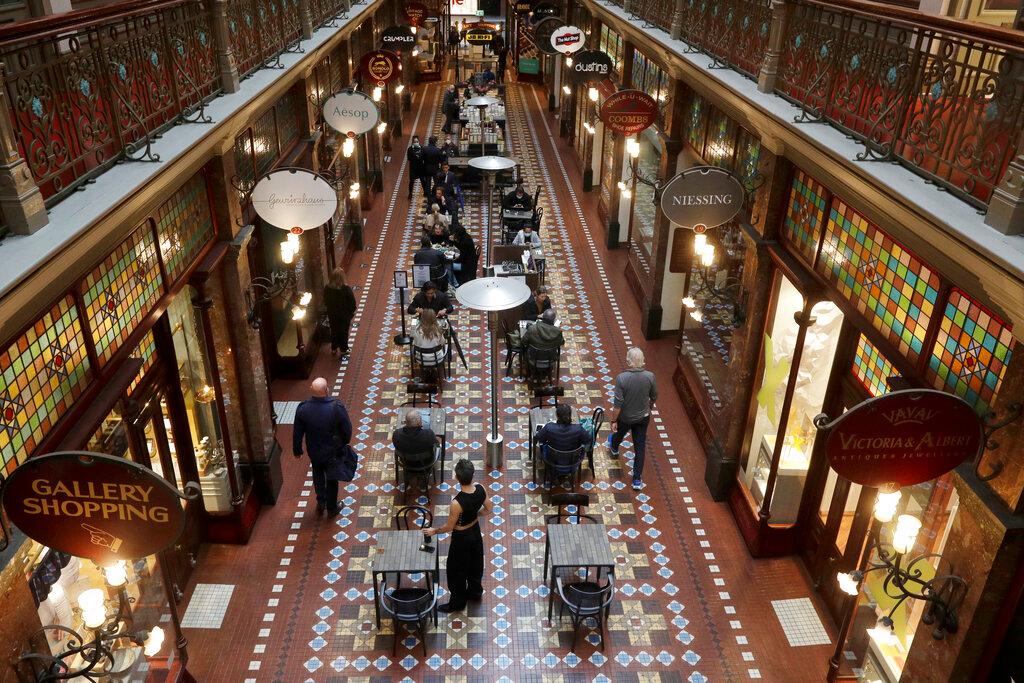Rain-sodden Sydney ends lockdown after 106 days
Australia's largest city dusts off the cobwebs after more than 100 days of 'blood, sweat and no beers'.
Just In
Elated Sydneysiders defied grey skies and rain to celebrate the lifting of almost four months of lockdown on Monday, hoping to put behind them a period of “blood, sweat and no beers” in Australia’s largest city.
Sydney’s more than five million residents have been subjected to a 106-day lockdown, designed to limit the march of the highly transmissible Delta variant.
With new infections now falling – New South Wales state recorded 479 cases on Monday – and more than 70% of over-16s double vaccinated, Sydney was dusting off the cobwebs.
Cafes and restaurants threw open their doors to anyone who could prove they were vaccinated while shaggy haired customers lined up outside hairdressers to get their home cuts and hair dyes repaired.
“It’s a great vibe this morning,” said Hannah Simmons, owner of Gordon’s Café in the beachside suburb of Clovelly who survived the lockdown hit to her business by offering takeaways including dinners.
“The outside seating will be a little bit dreary but that’s ok. We are really excited to be back there and open. That’s great.”
Outside the cafe, builder Nick James said getting work had been “up and down” in the construction business during the lockdown. “It would be nicer if it was a bit more sunny but what can you do,” he said.
For many, the end of lockdown was a chance to get into the shops. At midnight, hundreds of people poured into a discount Kmart store in the western Sydney suburb of Mount Druitt, with social media images showing long queues forming inside.
Since June, shops, schools, salons and offices have been closed for non-essential workers and there have been unprecedented restrictions on personal freedom.
There were bans on everything from travelling more than 5km from home, visiting family, playing squash, browsing in supermarkets to attending funerals.
‘Blood, sweat and no beers’
“Very few countries have taken as stringent or extreme an approach to managing Covid as Australia,” Tim Soutphommasane, an academic and former Australian race discrimination commissioner, told AFP.
There will still be limits on mass gatherings and international borders and schools will not fully reopen for a few weeks yet.
But otherwise daily life will look more like normal.
For most of the pandemic, Australia successfully suppressed infections through border closures, lockdowns and aggressive testing and tracing.
But the Delta variant put paid to any dream of “Covid-zero”, at least in the largest cities of Melbourne and Sydney which are now pivoting to “living with Covid”.
“It’s a big day for our state,” said New South Wales’ recently appointed conservative premier Dominic Perrottet.
After “100 days of blood, sweat and no beers,” he said, “you’ve earned it.”
But despite the celebratory mood, there are lingering concerns about what reopening will bring.
“There’s obviously a lot of excitement but it certainly has to be tempered by making sure we continue to look out for each other,” Perrottet told national broadcaster ABC.
“That’s been our success in the past. Everybody making enormous efforts to get vaccinated.”
There are also fears that reopening will inevitably bring a rash of new infections.
The Australian Medical Association this week pilloried Perrottet when he appeared to shift the focus away from health and onto the economic recovery.
“The AMA supports gradual opening up of the economy and the loosening of restrictions, but it is critical to observe the impact of each step on transmission and case numbers,” the doctors’ body said.
“Otherwise New South Wales may still see hospitals become completely overwhelmed despite high vaccination rates.”
Subscribe to our newsletter
To be updated with all the latest news and analyses daily.
